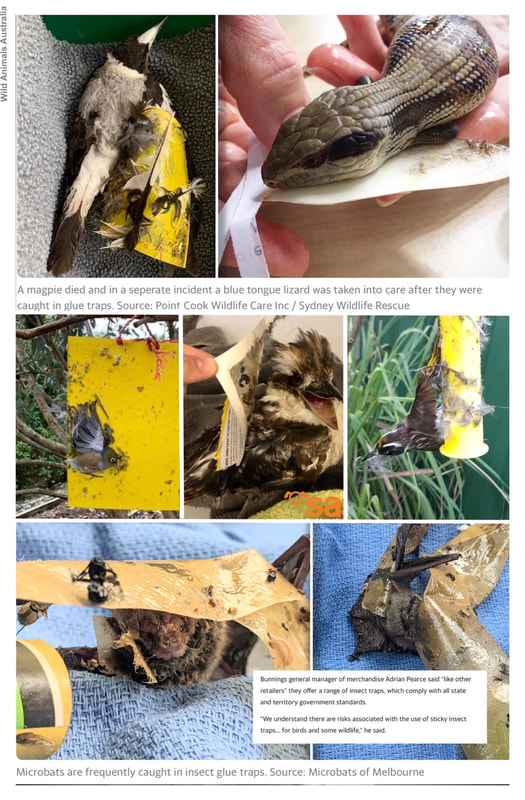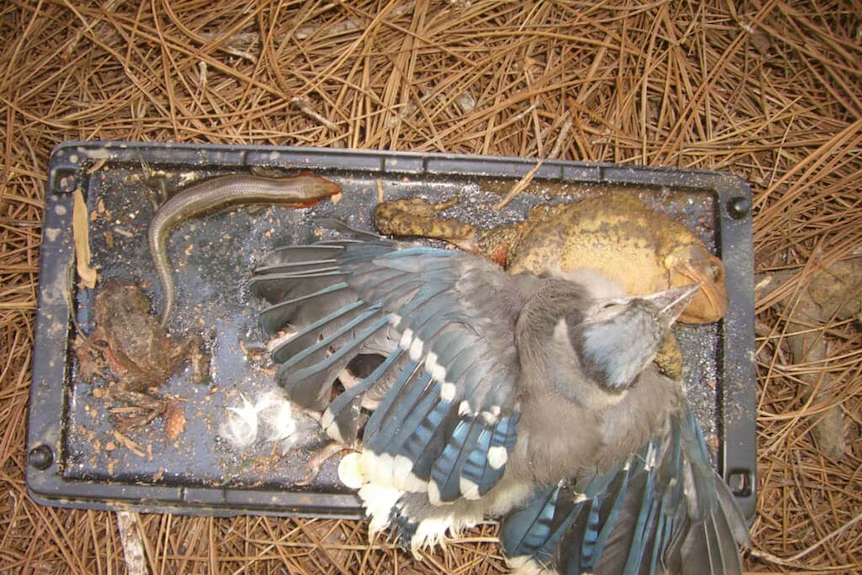Following the deaths of several native wildlife due to the use of glue traps, calls have been made to ban the products from both online and hardware stores.
Some of the retailers that sell these products include Amazon, Dick Smith, Temu, and Kogan.
While retailers such as Amazon have stopped selling standalone insect sticky traps, the manufacturer of these products, Australian retailer Bunnings, still sells them.
The animal welfare group RSPCA Queensland noted that retailers’ inaction in stopping the widespread use of glue traps has led to the deaths of several animals.

Emma Lagoon, a spokesperson for the organization, said that these products are essentially boards that are designed to trap animals.
Although some retailers have stopped selling these products, she noted that they are still available in stores and online.
Despite the organization’s warnings, the manufacturer of these products noted that its modifications are in line with the government’s requirements.
Adam Cole, the general manager of the merchandising division of Bunnings, said that the company is closely following the various views about the product and has a process in place to review its offerings.
Since the company started phasing out the sale of naked insect traps, it only sells products that come with cages designed to catch insects. The RSPCA also noted that small birds and lizards are still getting trapped in these traps.
At the organization’s Brisbane facility, she said that they have seen around 20 cases of wildlife getting trapped in these traps. Most of these animals require anaesthesia to remove the adhesive.
Unless the animals are immediately removed from these traps and treated for their injuries, they will likely die from starvation or dehydration. The RSPCA recently came across two cases involving a kookaburra and several dead skinks on the same product.
One of the animals that was rescued was a blue tongue lizard, which had been stuck in a glue trap. Although it wasn’t clear where the items were purchased, it’s believed that they were intended to catch rodents. Both the lizards and the Kookaburra were successfully treated and released back into the wild.
Regardless of the type of animal they are trying to catch, the RSPCA claims that these traps are cruel. According to Lagoon, the animals are typically stuck in these traps for a long time before other parts of their bodies become trapped. This can cause various injuries, such as bruising and bone fractures. Some animals also reportedly chew their limbs off to escape.
The use of these traps can also cause various psychological issues, such as stress and anxiety. According to a review conducted by the organization, the effects of these traps on an animal’s welfare were severe. In addition, they reportedly caused the animals to defecate in order to relieve themselves. The RSPCA urges people to prevent rodents from entering buildings and food by ensuring that they are not able to access these items.
In Australia, the use of glue traps is restricted in various states and territories. In Tasmania and Victoria, these are only available to licensed pest control companies. In other areas, such as South Australia, Queensland, Western Australia, and New South Wales, there is no regulation regarding the use or sale of these traps.
Lagoon stated that these types of traps should be prohibited in Australia to ensure that they are never used.
The RSPCA doesn’t believe that using glue traps is necessary as there are other alternatives that are more humane.
Due to the varying laws in different areas, the RSPCA is advocating for a total ban on the use and sale of glue traps. It also wants the government to establish regulations that are in line with the country’s animal welfare laws. In 2022, thousands of Australians signed a petition urging the country’s major retailers to stop selling certain types of traps.
The products that are currently available from the stores of Bunnings are designed to fit inside their cupboards. These features help prevent non-insect species from getting trapped. Despite the company’s efforts to comply with the laws, the RSPCA still wants the regulations to be strengthened.
According to reports, the packaging of the products has been updated to make sure that people are knowledgeable about how to use them safely. In addition, the company has also introduced other non-sticky products.

